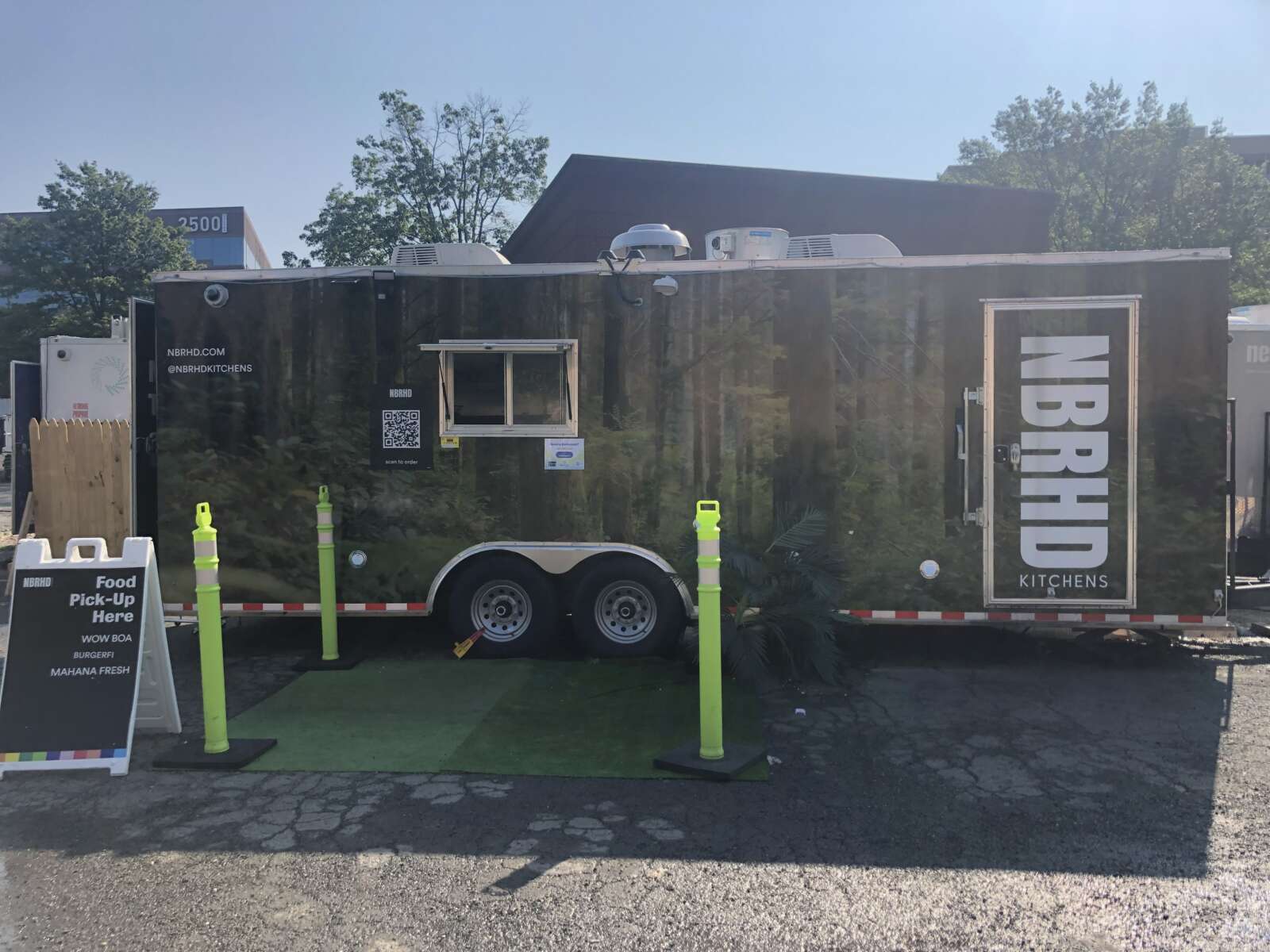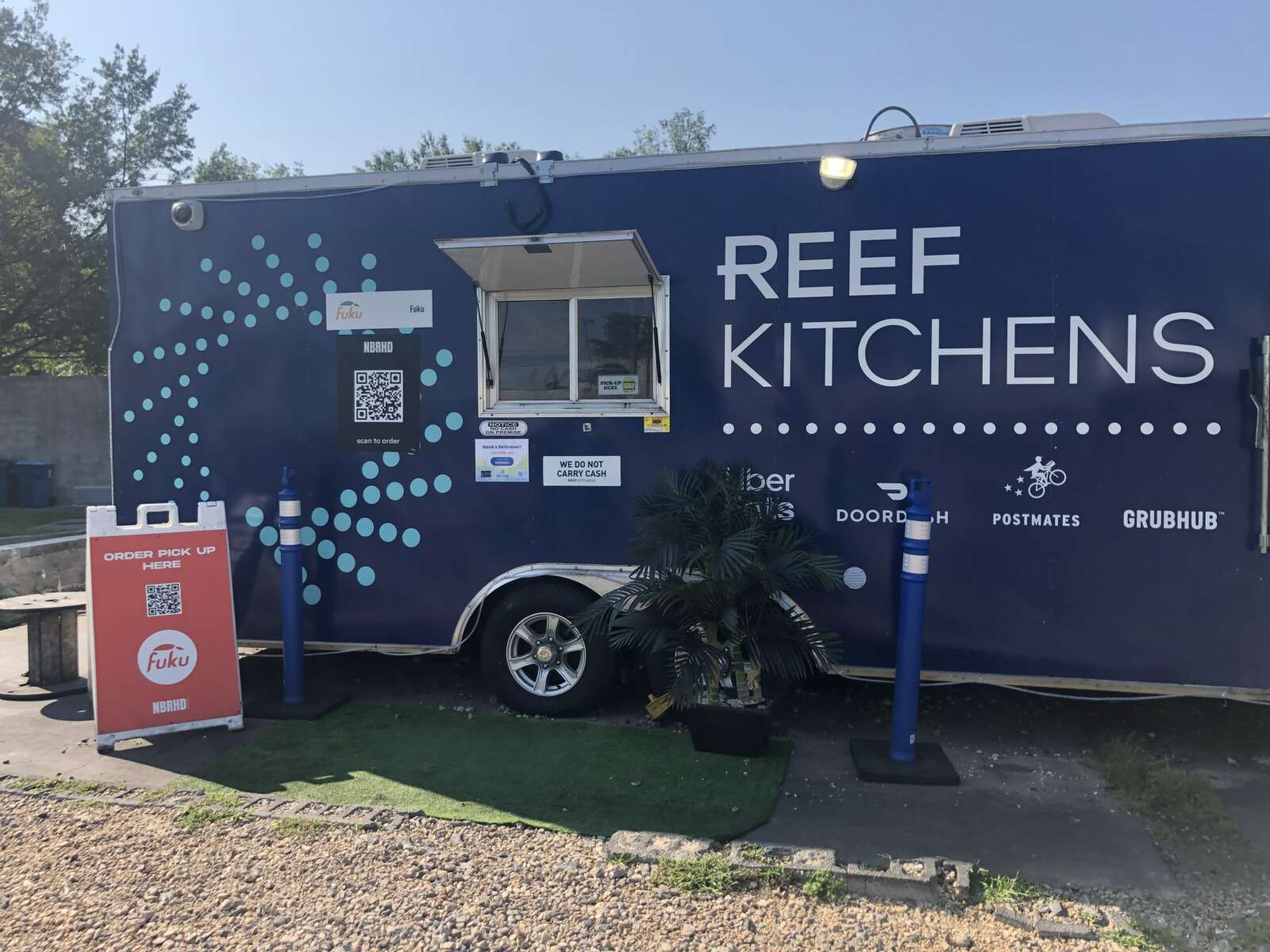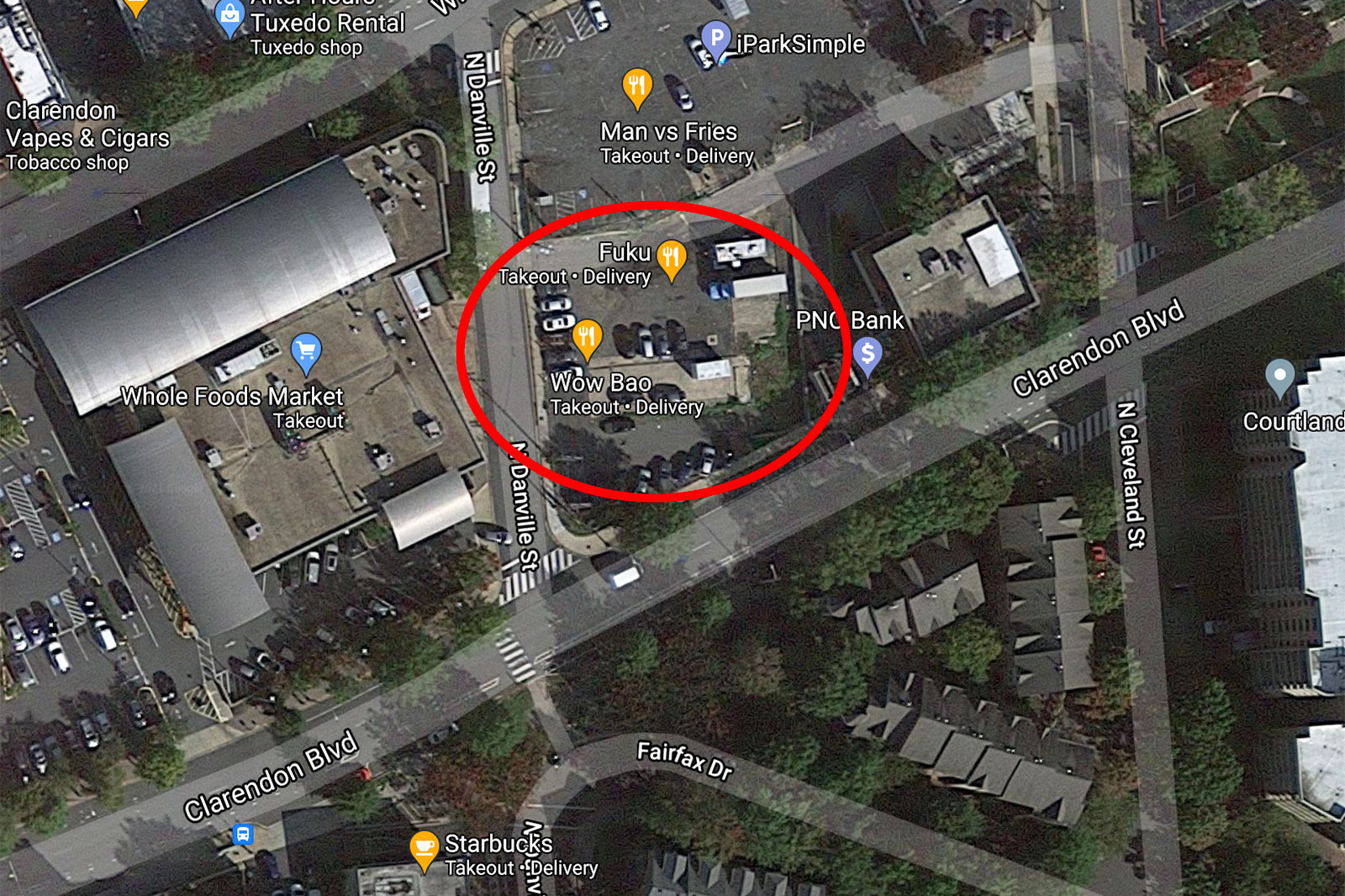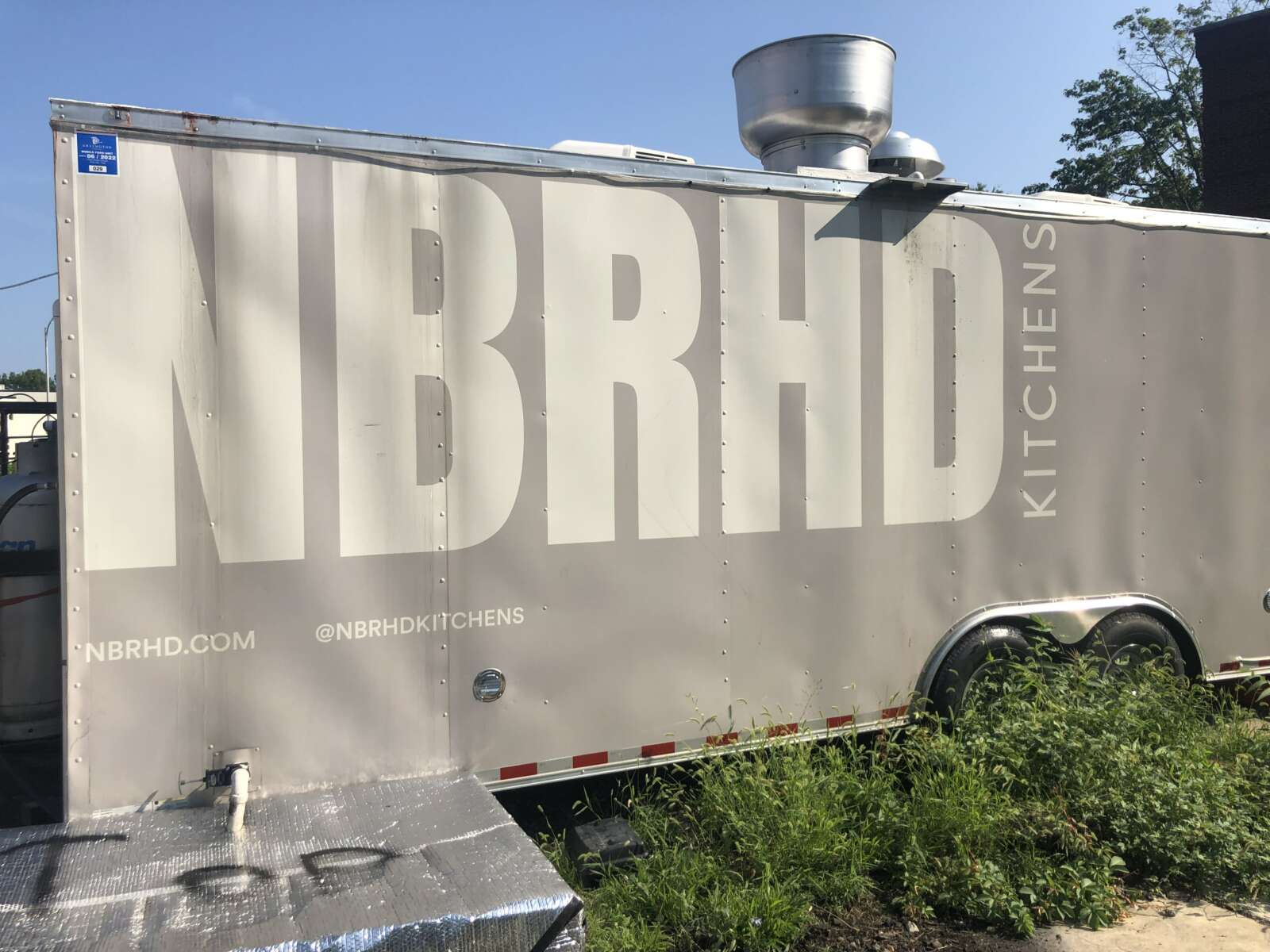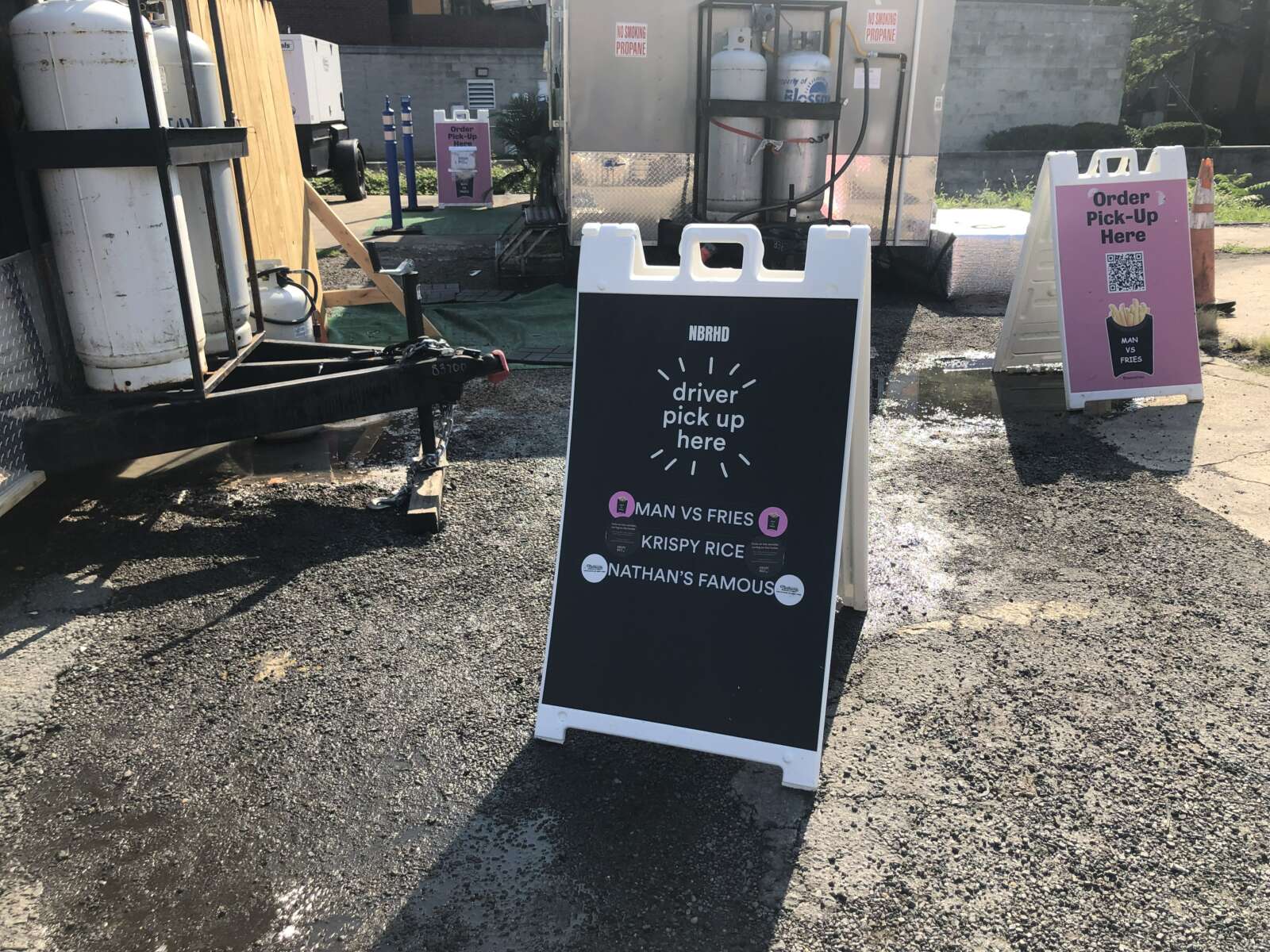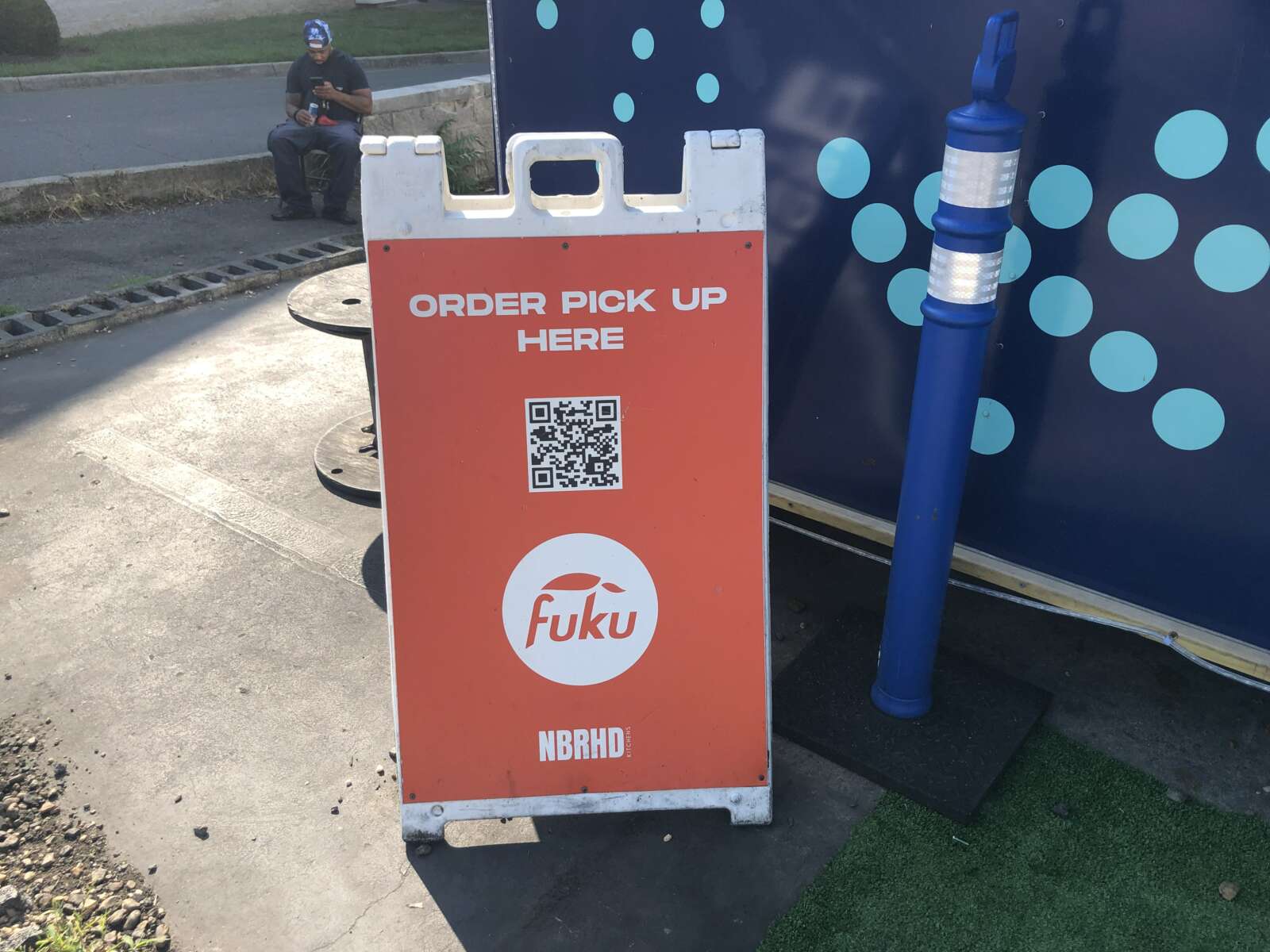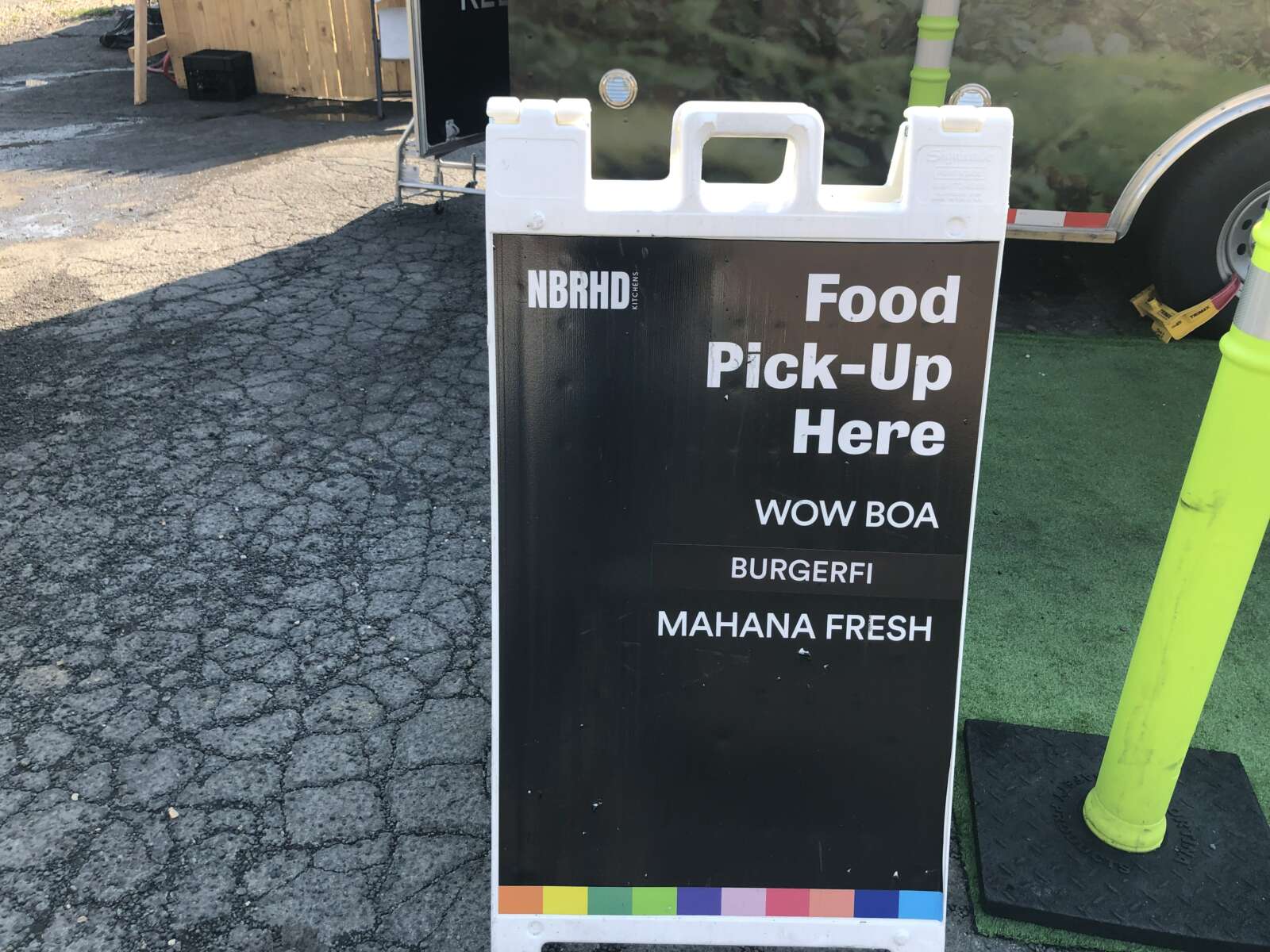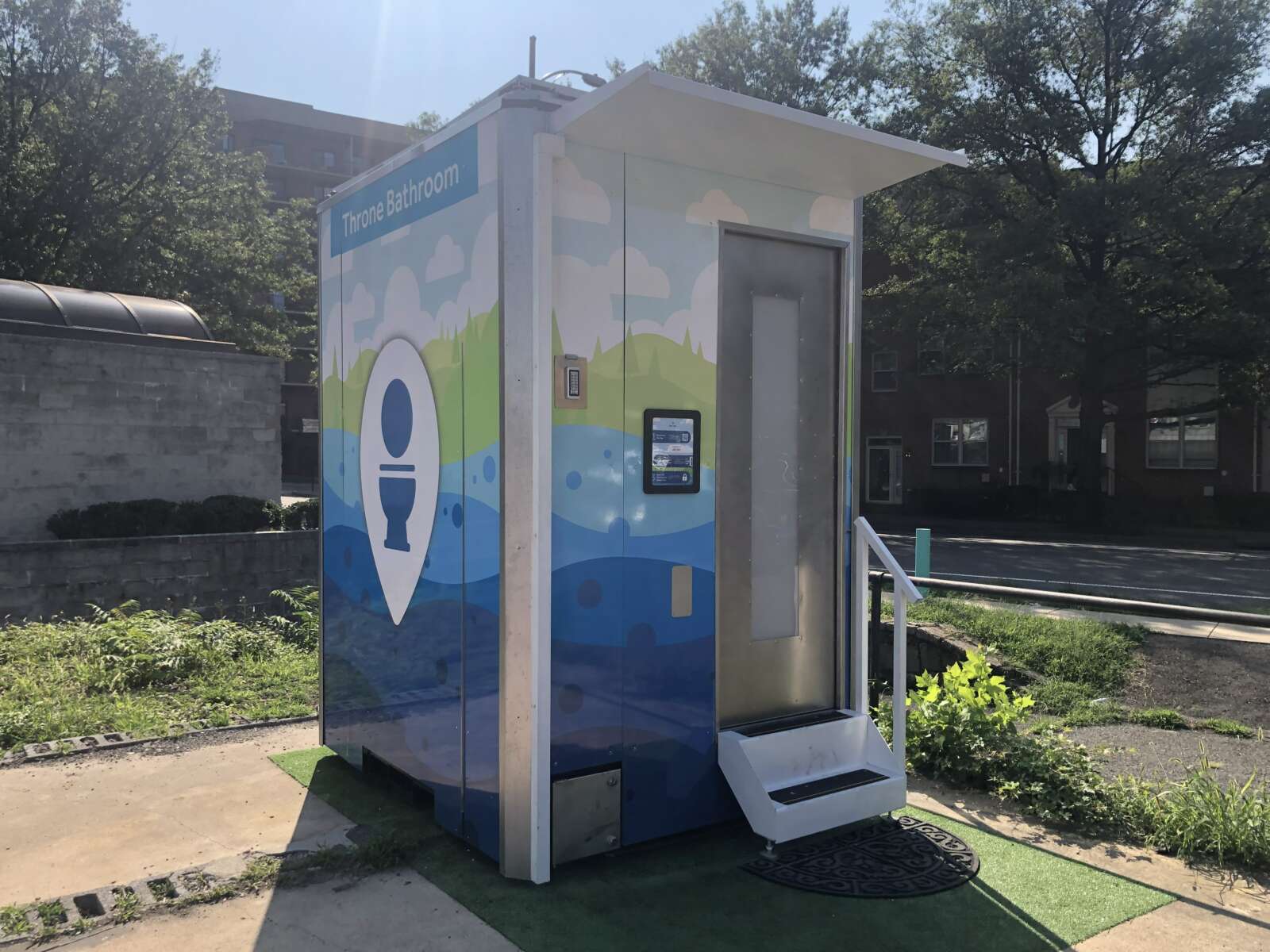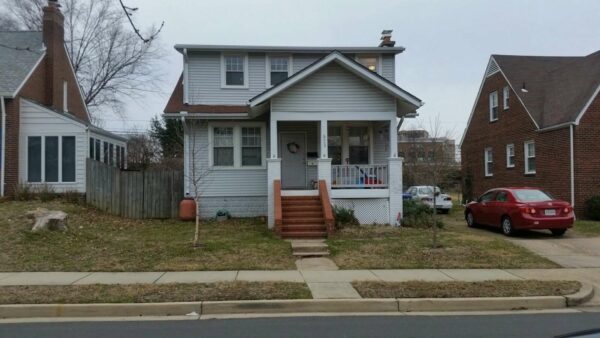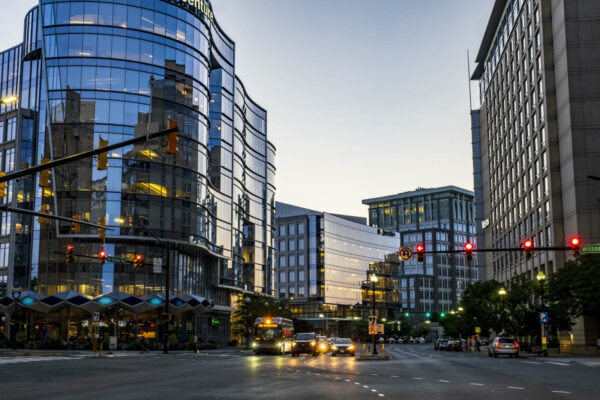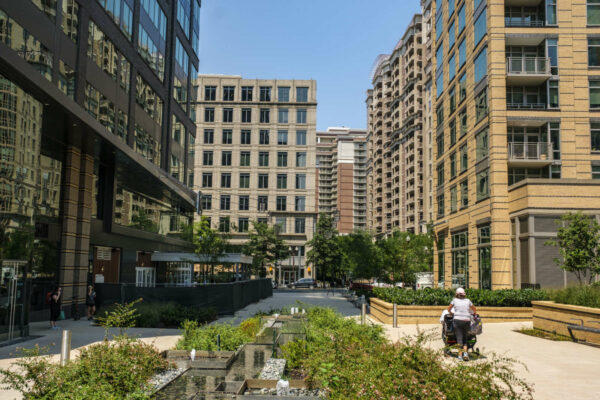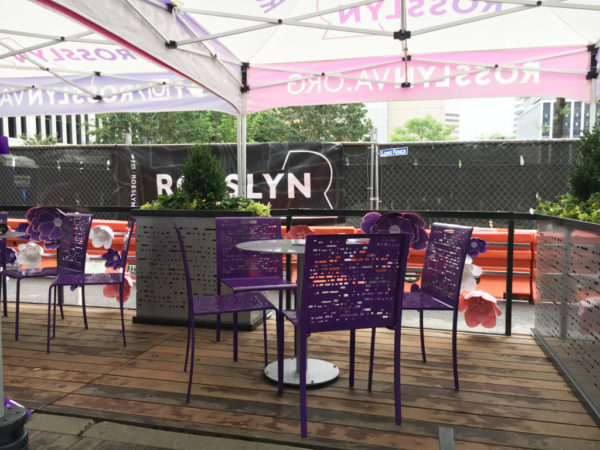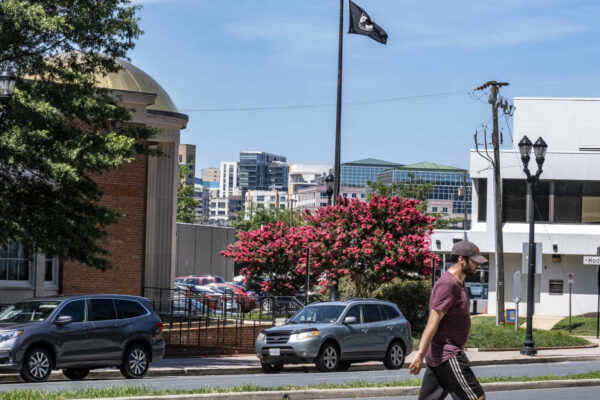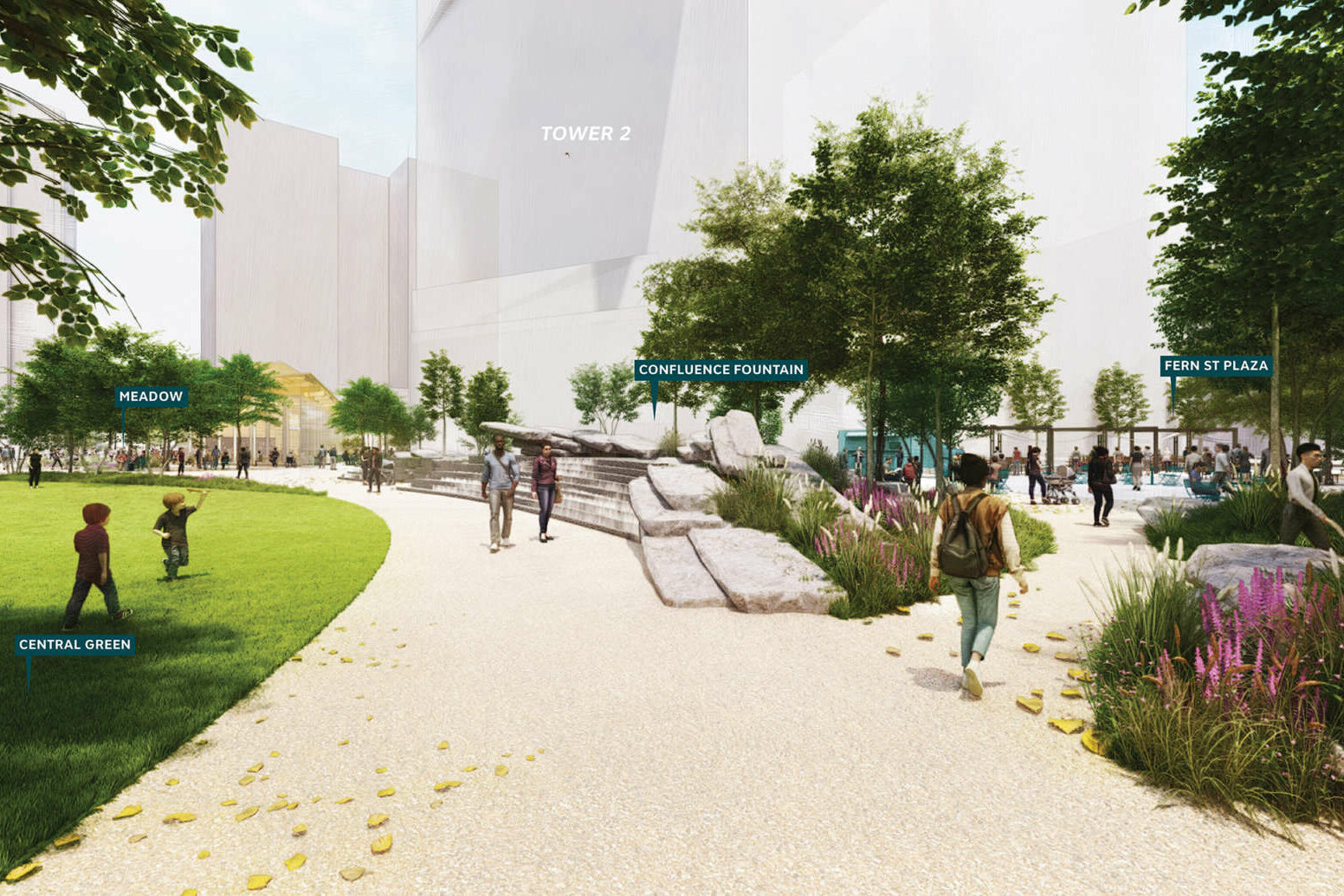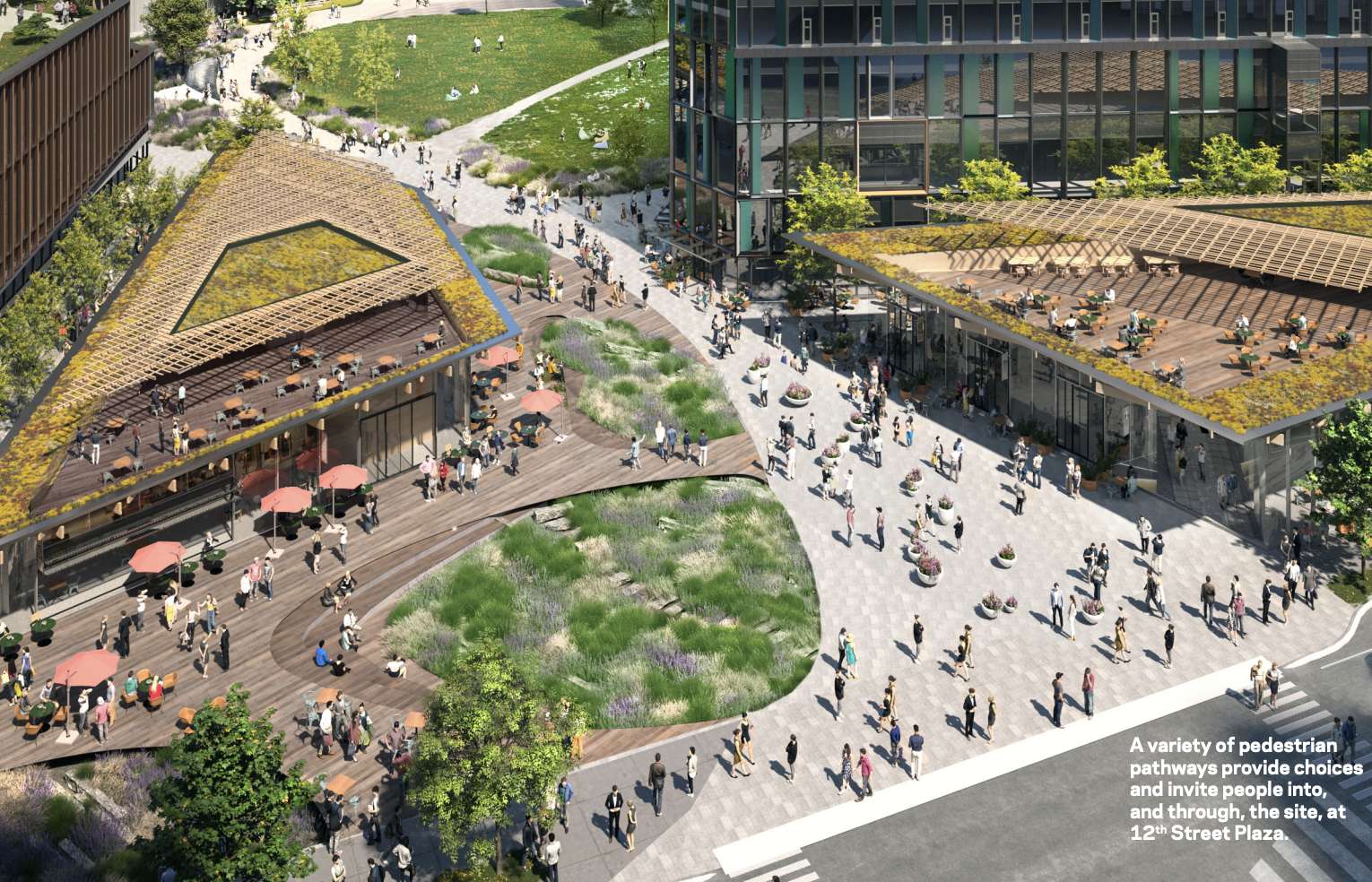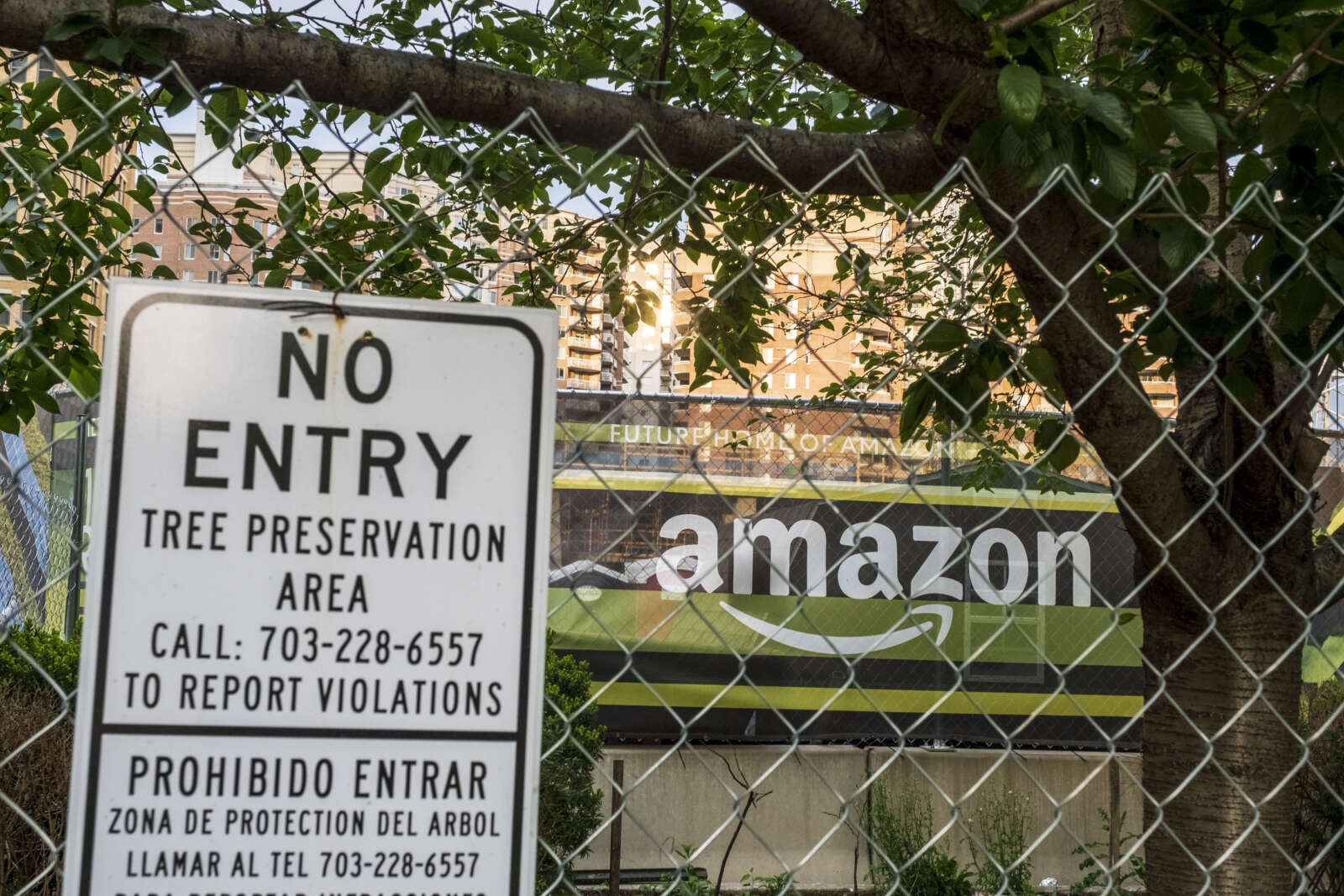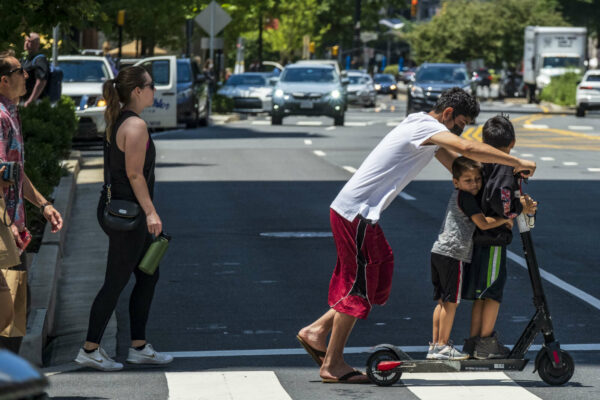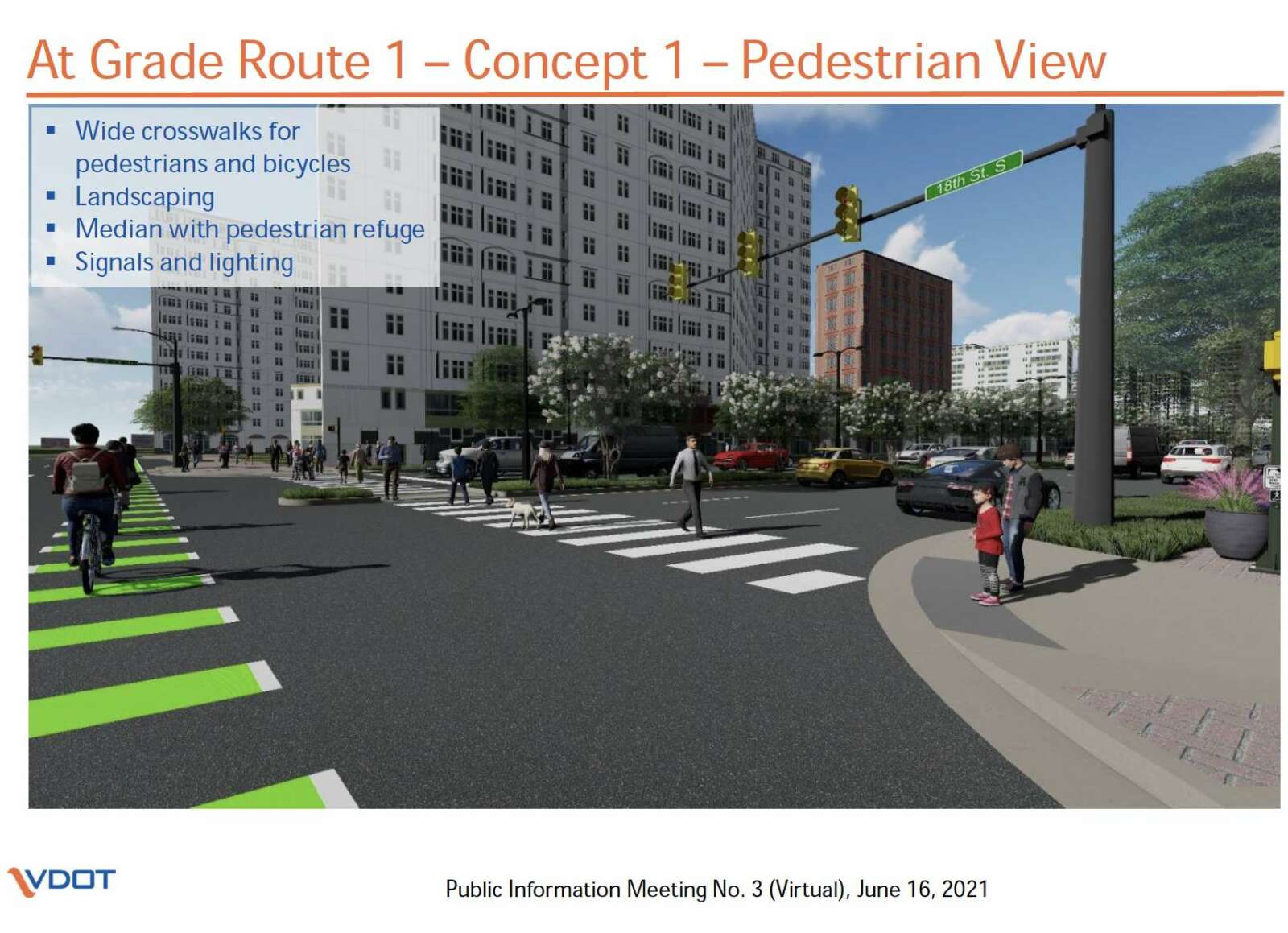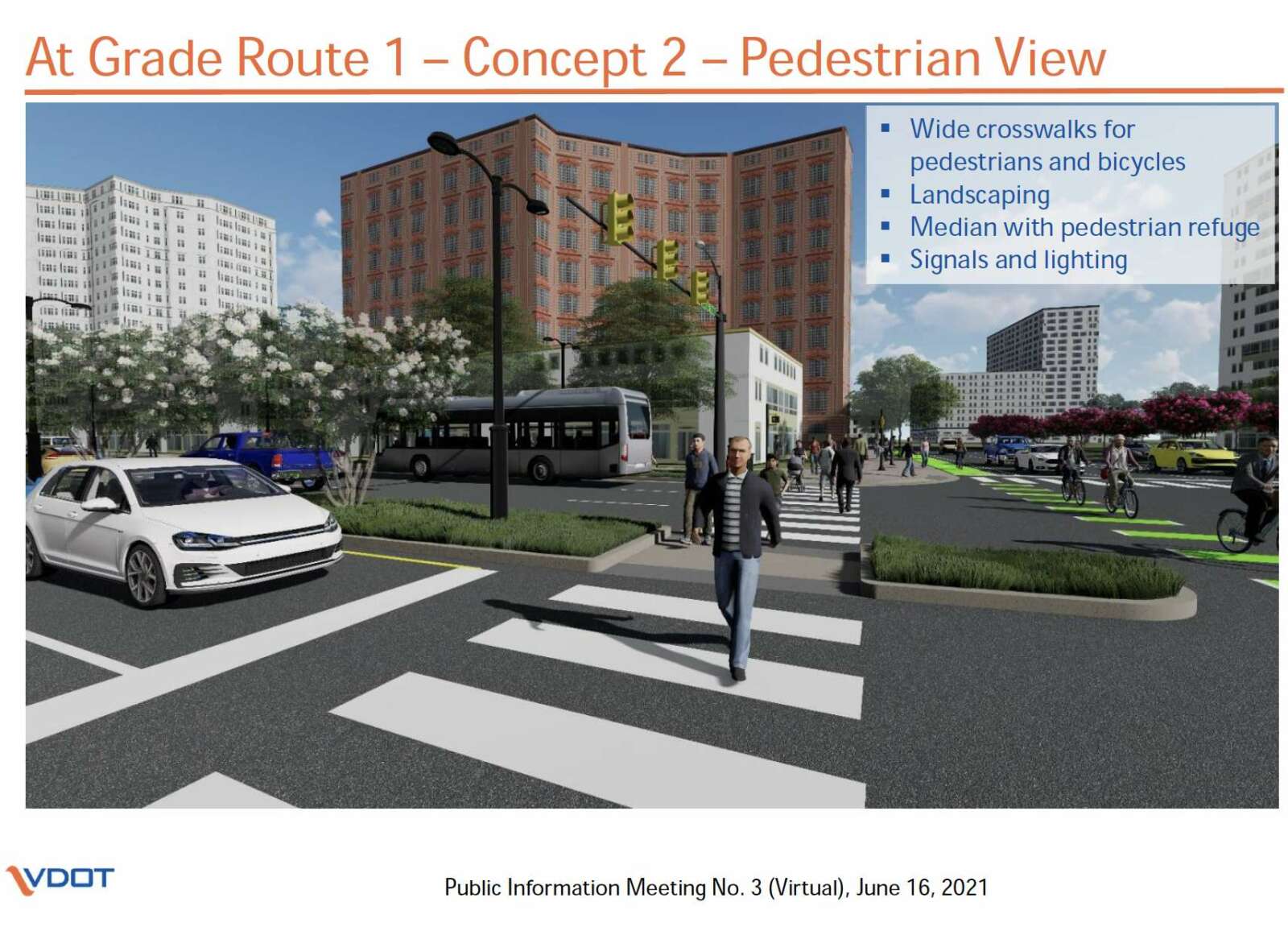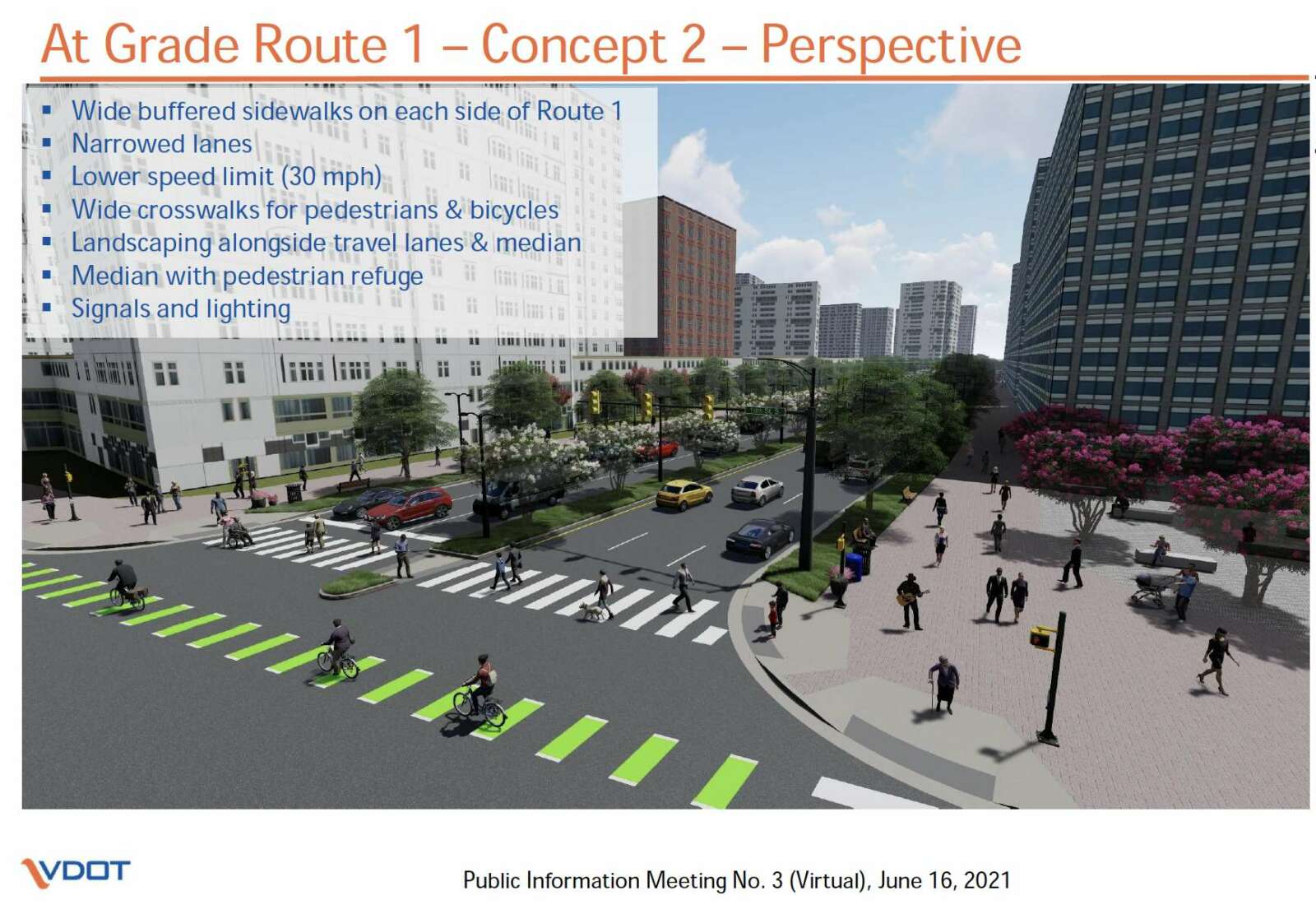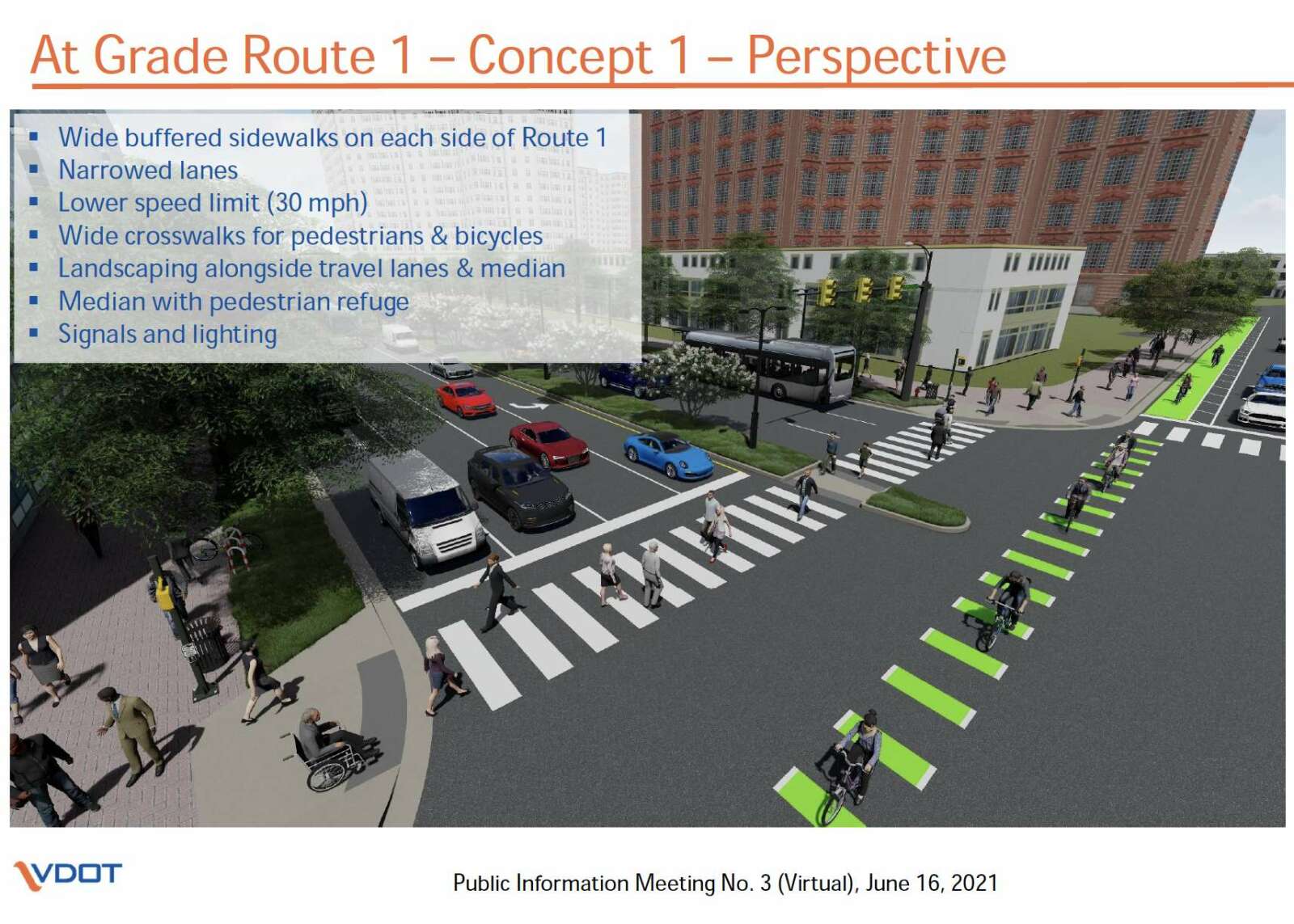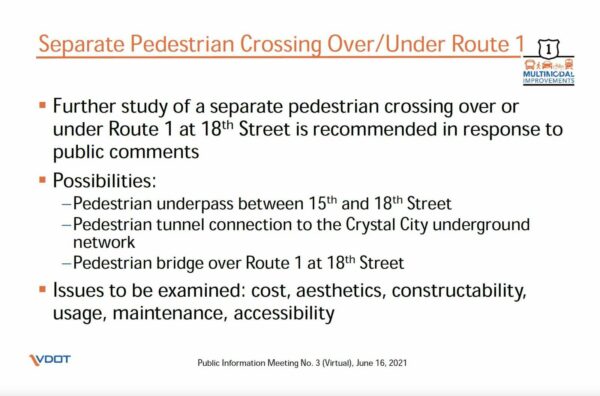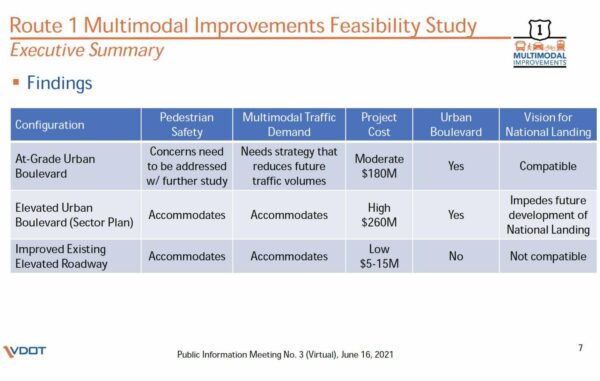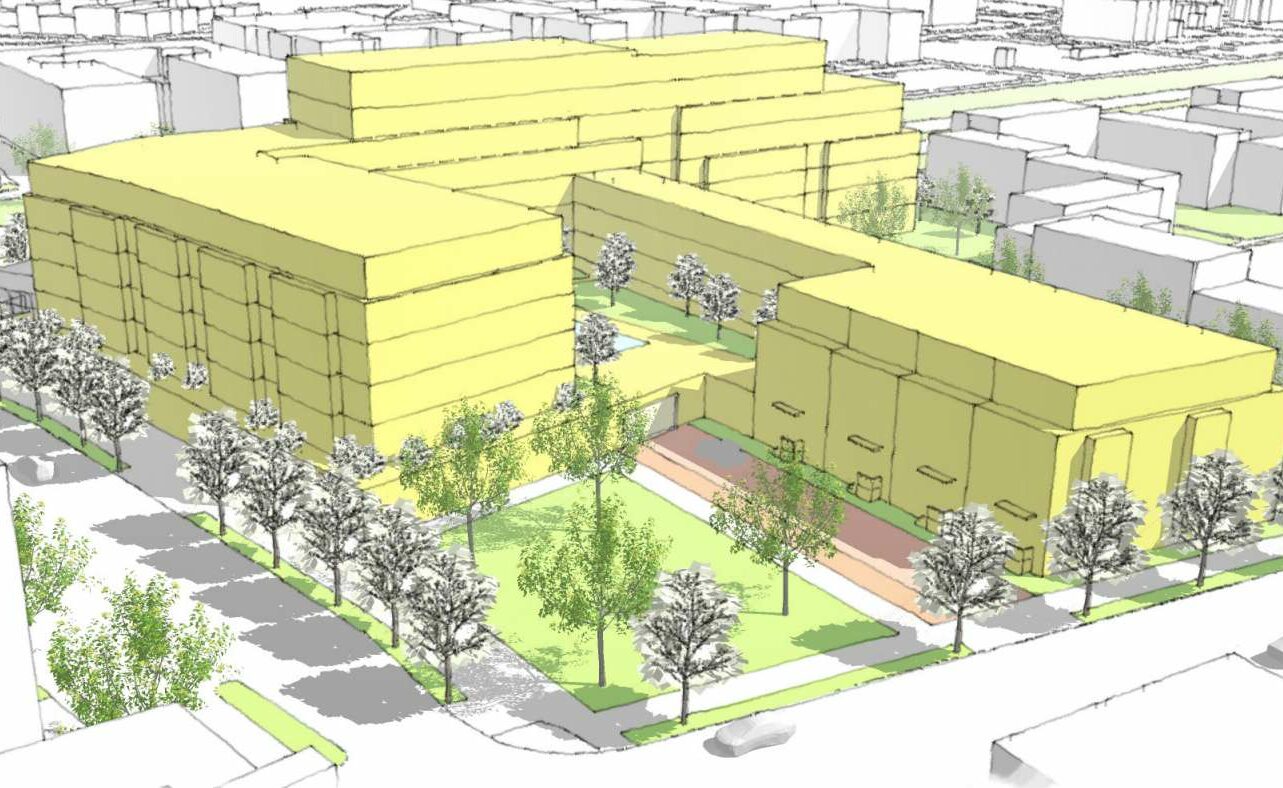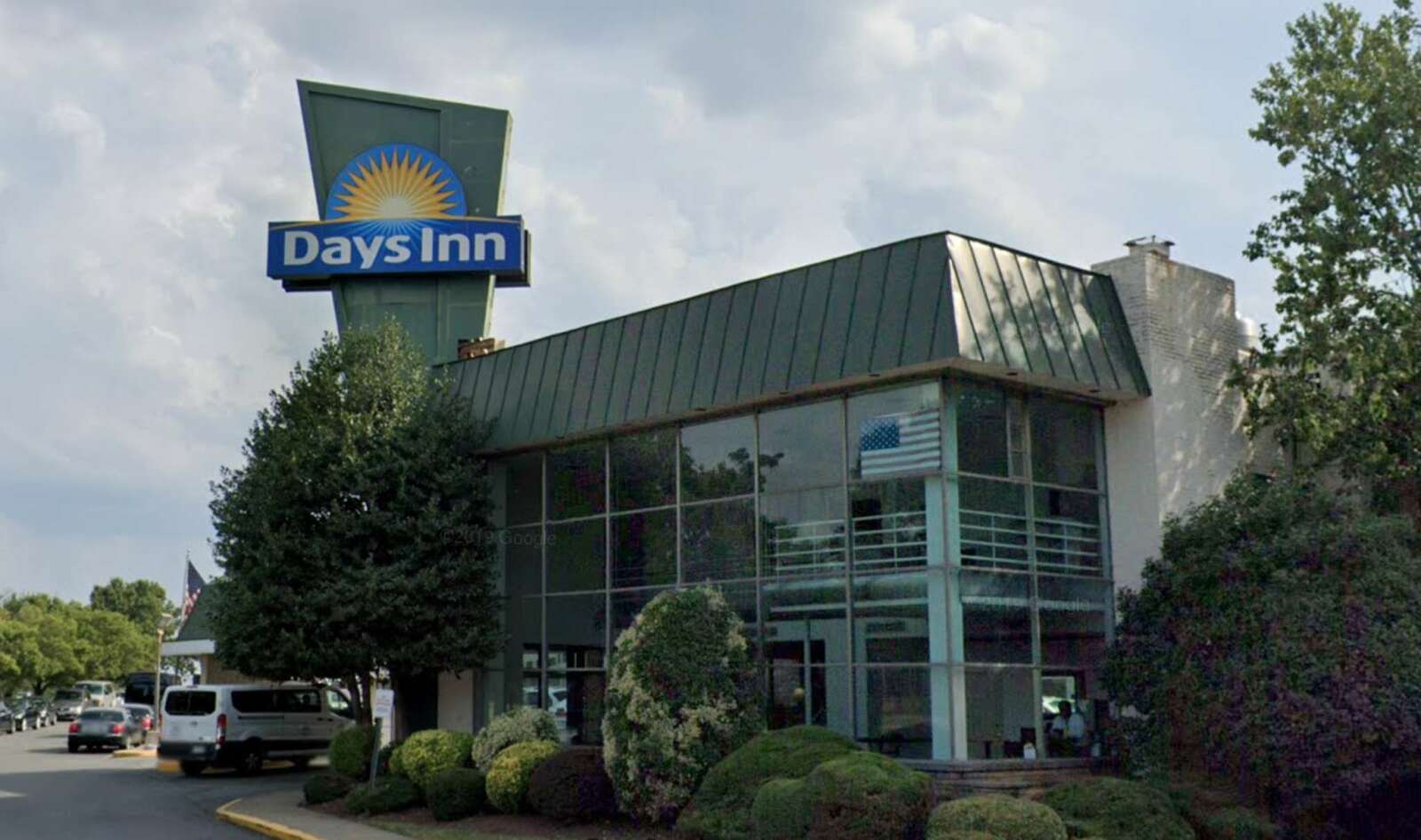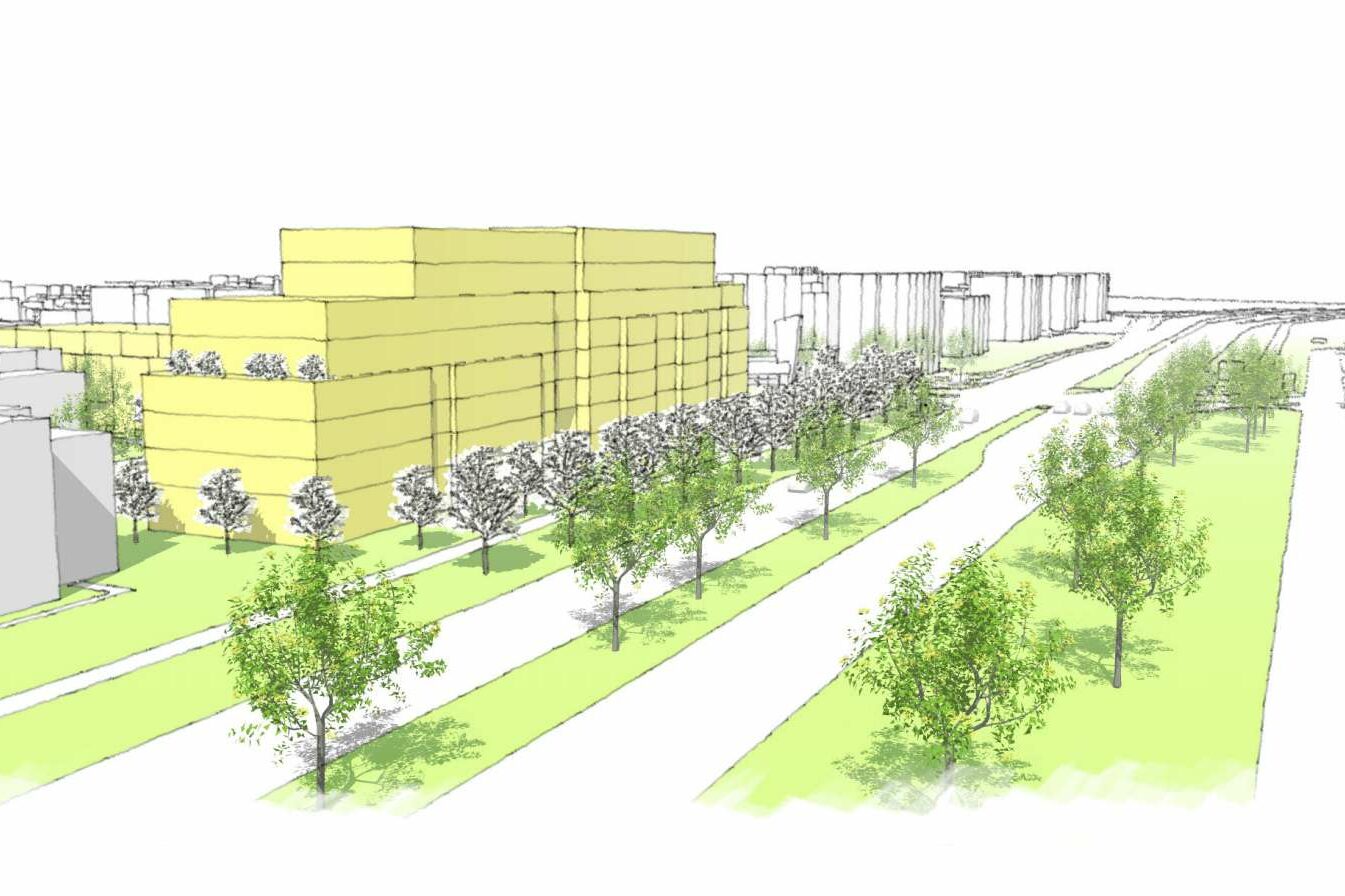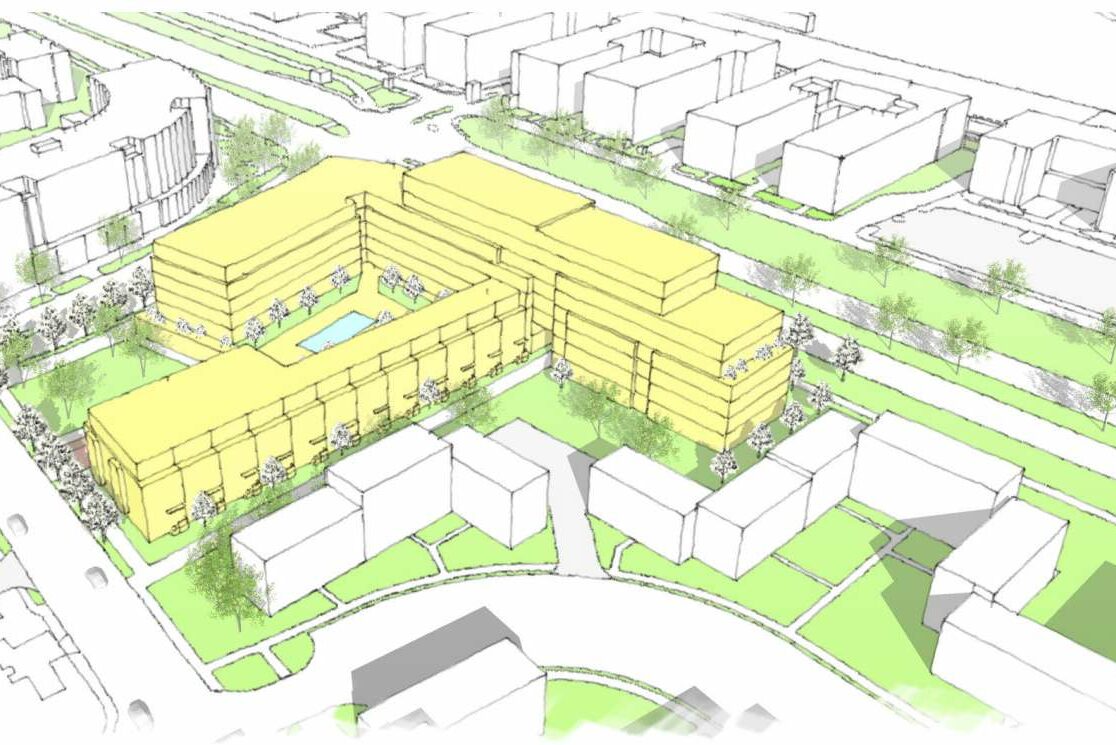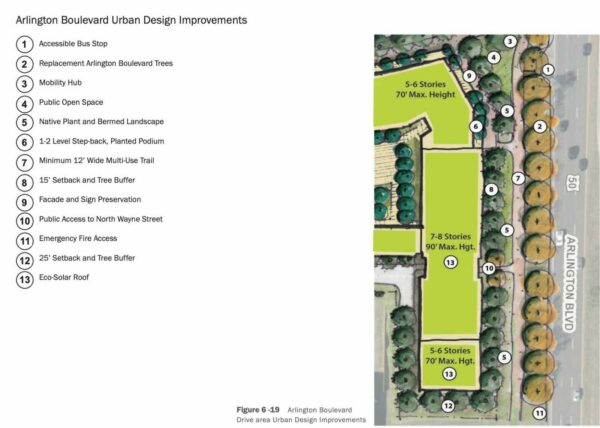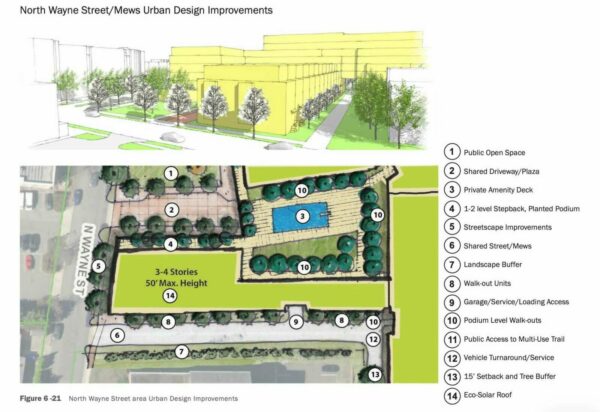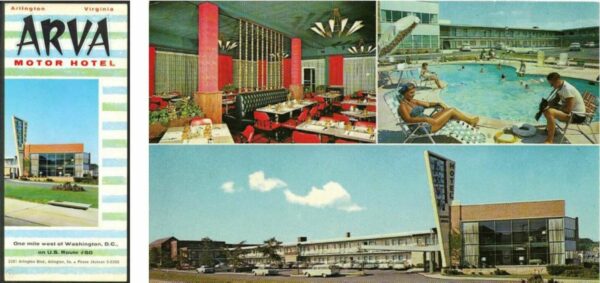A kitchen trailer in Clarendon that popped up last summer in a vacant lot has since been joined by two others.
And now they’re producing meals from more than a half-dozen “ghost kitchens” available on food delivery platforms such as DoorDash and Grubhub. Out of these kitchens come fried chicken sandwiches, asada fries and Asian street food, among other dishes.
The three trailers between the Clarendon Whole Foods and the PNC Bank are owned by REEF Technology, a company focused on turning underutilized, urban parking lots into food and logistics hubs. The food service arm of Reef is called NBRHD Kitchens.
In total, according to signage on the property, these three trailers produce meals for seven restaurant concepts. They’ll be bringing activity the vacant lot while Arlington County embarks on a special study to determine if the zoning codes for the property, near the border of the Clarendon and Courthouse neighborhoods, should allow for a new apartment building.
“REEF launched its delivery restaurants in Arlington in June 2020, being the first municipality in which the company establishes its operations,” the company tells ARLnow. “REEF’s delivery restaurants in Arlington are among the highest performing.”
The company also has two kitchen hubs in D.C. — at P Street NW and K Street NE — and each can support between four and six brands. But REEF did hint at possible expansion.
“As Arlington continues to be a great performing location, REEF continues to look at opportunities to grow its footprint in terms of delivery restaurants and other business verticals,” REEF said.
REEF’s growth and expansion mirrors the trends that the food delivery platforms DoorDash and Grubhub tell ARLnow they’re observing. Spokespeople for the companies said delivery-only kitchens have proliferated particularly in the last year in response to pandemic challenges and the rising costs of establishing a physical location.
“Delivery-only virtual (or ghost) kitchens on Grubhub have been a rising trend over the last year, representing a flexible way for restaurant owners to experiment with new menu concepts, brand a subset of existing menu items, or capture unmet customer demand without adding overhead,” a Grubhub spokeswoman said.
DoorDash doesn’t collect data on the breakdown between delivery-only restaurants and those with storefronts, but the pandemic blurred that line anyway, as traditional dining establishments turned to different models to keep operating when dine-in wasn’t an option.
“For many restaurant owners, ghost kitchens provide a more cost-effective way to expand their business — reaching new markets and customers — because they don’t involve the typical overhead costs associated with opening a new restaurant,” said Emily Tung, the director of DoorDash Kitchens. “Many independent businesses have been successful in their ghost kitchen endeavors and our goal is to support our partners across all their locations and help accelerate their online success.”
But the ghost kitchen activity at this location is destined to be temporary, as the company that owns the lot aims to redevelop it.
Dubbed Courthouse West, the lot at 2636 Wilson Blvd is bounded by N. Danville Street, Clarendon Blvd, N. Cleveland Street and Wilson Blvd. The property’s owner, CRC Companies, has asked the county to change the land-use designation — which currently allows for one- to four-story buildings — to one that allows for hotels or taller apartments.


